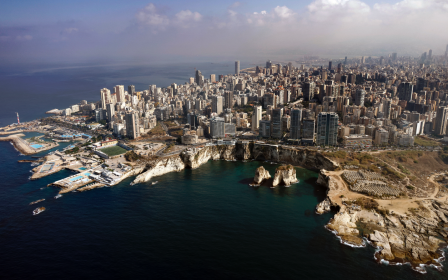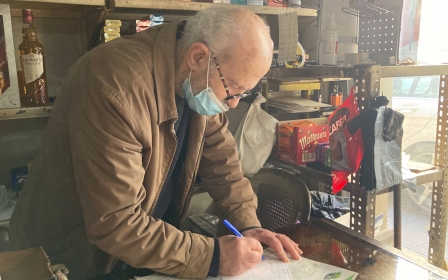US sanctions Lebanon's former central bank chief Riad Salameh

The US slapped sanctions on Lebanon’s former central bank chief Riad Salameh Thursday, over what it called “corrupt and unlawful actions” which contributed to the “breakdown of the rule of law in Lebanon”.
The US Treasury Department said in a statement on Thursday that Salameh abused his position of power, likely in violation of Lebanese law, to enrich himself by funnelling hundreds of millions of dollars through shell companies to invest in European real estate.
US sanctions were also imposed against his brother, son, former assistant, and ex-partner.
The sanctions effectively freeze any assets of Salameh and those of his associates and prohibit transactions between them and US citizens or businesses.
“Salameh contributed to Lebanon’s endemic corruption and perpetuated the perception that elites in Lebanon need not abide by the same rules that apply to all Lebanese people,” Brian Nelson, undersecretary of the Treasury for Terrorism and Financial Intelligence, said.
New MEE newsletter: Jerusalem Dispatch
Sign up to get the latest insights and analysis on Israel-Palestine, alongside Turkey Unpacked and other MEE newsletters
The statement made clear the sanctions do not apply to the Lebanese central bank. The US added that the sanctions were coordinated with the United Kingdom and Canada.
The Treasury Department outlines a scheme where Salameh diverted funds from Lebanon’s central bank to property management companies in France, Germany, Luxembourg, and Belgium that were registered in the names of either his son, Nady Salameh or former partner, Anna Kosakova.
They say funds were then used to purchase high-end commercial real estate worth "tens of millions of dollars", including apartments in one of Paris’ most sought-after neighbourhoods, and an office building on the pricey, Champs-Elysees.
The Treasury added that Salameh used shell companies in Panama and a trust in Luxembourg to hide his identity and purchase stock in a company where his son, Nady, had worked as an investment advisor, only to sell those shares to a Lebanese bank regulated by the central bank.
“This sale represents both a conflict of interest as well as a likely violation of a Lebanese law prohibiting employees of the [central bank] from profiting from other private businesses,” the Treasury department added.
The US move comes after Salameh stepped down as central bank governor earlier this month.
Lebanese 'Ponzi scheme'
He has been widely blamed by analysts and Lebanese citizens for facilitating the corruption and economic mismanagement perpetrated by Lebanon’s elite that led to the country’s economic collapse, which has seen the currency crash and inflation and poverty soar.
Salameh is embroiled in several investigations in Lebanon and at least five other European countries for allegedly taking hundreds of millions of dollars from the country’s central bank and laundering the funds abroad.
Salameh is embroiled in several investigations in Lebanon and is wanted in France and Germany over money laundering and corruption charges. An Interpol Red Notice has been issued for his arrest, but Lebanon does not extradite its nationals.
It represents a stark fall from grace for Salameh, who was appointed governor of Banque du Liban in 1993 and won plaudits for helping to stabilise Lebanon's economy as it emerged from a brutal 15-year civil war.
But in a report in 2022, the World Bank characterised the financial programme used by Salameh at the central bank as a “Ponzi scheme”.
Lebanon’s gross domestic product has plunged to an estimated $16.2bn in 2023 from about $55bn in 2018, according to the International Monetary Fund, and Lebanon's banks have locked depositors from accessing their savings, limiting all withdrawals.
The financial losses from the ad hoc capital controls are estimated to be around $73bn. The World Bank has ranked Lebanon's financial crisis as the worst one globally since the mid-19th century.
Middle East Eye delivers independent and unrivalled coverage and analysis of the Middle East, North Africa and beyond. To learn more about republishing this content and the associated fees, please fill out this form. More about MEE can be found here.





